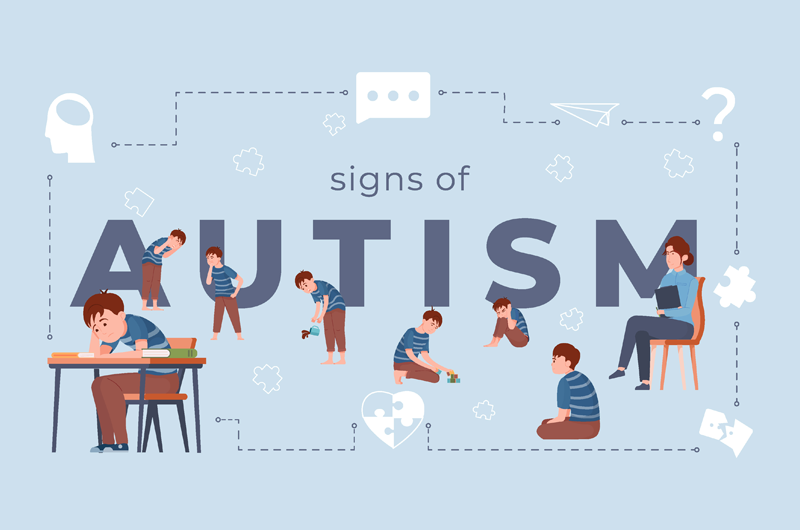Autism spectrum disorder (ASD) is a range of intricate neurodevelopmental disorders characterized by difficulties in communication, social impairments, and repetitive stereotyped behavioral patterns. The Centers for Disease Control and Prevention (CDC) estimates that 1 in 88 children in multiple communities in the United States have autism spectrum disorder (ASD).
Typically, autistic children need physical, occupational and speech therapy; sometimes social and behavioral (ABA) therapy and psychological therapy may also be needed. Providers of these services are reimbursed when the therapy is reported using the accurate diagnostic and procedural codes. Doctors treating patients may also recommend medications and other therapies. 35 U.S. states have already passed autism insurance reform laws that require health plans to cover speech therapy, ABA therapy and other autism-related treatments. The Affordable Care Act requires fully funded health plans in all states to offer habilitative care in parity with rehabilitative care. This signifies that they must offer the same number of sessions for these therapies as they offer for rehabilitation. Care cannot be denied just because the condition is a developmental disability.
Autism management focuses on minimizing the symptoms and maximizing independent function of the patient and his/her quality of life. All children are to be screened for autism at 18 months and then when he/she is 2 years old, and at any time a parent/guardian raises a concern about ASD even in the absence of developmental delay. Early diagnosis and treatment of autism is definitely necessary, and most health insurers approve these treatments that are medically necessary.
Specialists who can do comprehensive diagnostic evaluation for ASD include: developmental pediatricians, child neurologists and child psychologists or psychiatrists. These specialists while billing for the services provided use current ICD-9 codes such as –
- 299.00 – Autistic disorder, current or active state
- 299.01 – Autistic disorder, residual state
When it comes to coding for specific therapies for autism, there are different codes for different units of time spent on those therapies. For example one hour of speech therapy is coded using CPT code 92507 whereas 97112 is the code used to report just 15 minutes of physical therapy. Therapists should know the correct code appropriate for their service and also how many units to charge for.
New Study Highlights Possibility of New Treatment Option for Autism
A new study by the Columbia University Medical Center suggests that children with autism have extra synapses in their brain. Synapses are where brain cells connect and commune with each other. These synapses are due to a strike in the normal brain “pruning” process during development. Researchers linked this defect to the over expression of a key enzyme. Each of the “spines” extending from the brain connects with a brain cell through a synapse. Synapse density was determined by counting the number of tiny spines. The team found that in the brains of those without autism, the number of spines had reduced almost half by late childhood. But for those with autism, the number of spines in the brains had only reduced by 16% by late childhood.
Preliminary findings of the study published online in Neuron suggest that it may be possible to treat this phenomenon using an immunosuppressant commonly used in transplant patients.
The team analyzed 26 brains of autistic children and adolescents who had died from other causes, and 22 brains of children without autism.
Further, the research also revealed that the brains of children with autism have neurons that consisted of old and damaged components, and showed deficiency in a pathway known as autophagy, a route that cells use to “eat” their own parts. Obviously the brains of autistic children had higher spine density owing to the fact that the unwanted synapse connections had not been destroyed.
Timely Intervention Is Important
According to CDC, all children should be screened for developmental delays and disabilities during regular well-child doctor visits at 9 months, 18 months, 24 or 30 months. Additional screening may be needed if a child is at high risk for developmental problems due to preterm birth, low birth weight or other reasons.
Through the Obamacare act, now more Americans will have access to health coverage and no-cost preventive services that include autism screening for children at 18 and 24 months.




